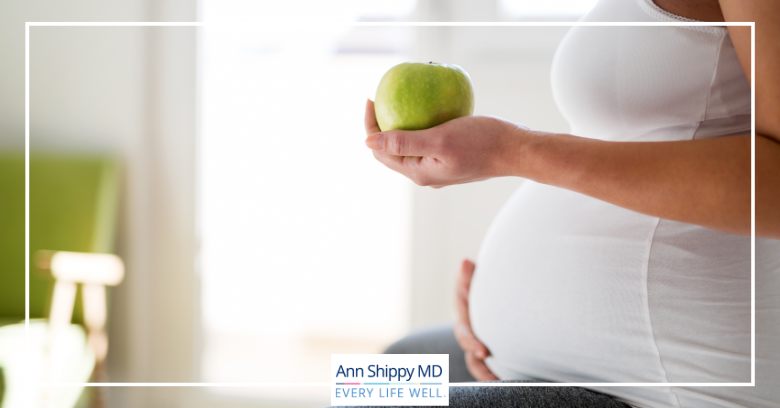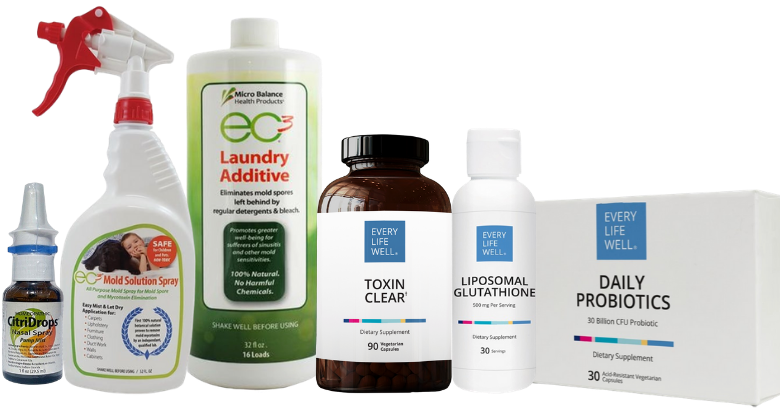Preconception Nutrition And Choosing A Quality Prenatal Supplement
Did you know that it takes a woman’s egg three to four months to fully develop before ovulation?
Nutrition status during pregnancy is certainly important for healthy growth and development, but nutrition prior to pregnancy is equally important and sets the stage for what is to come.
If you want to become a mother in the coming years or are experiencing fertility challenges, nutrition is a part of the picture not to be overlooked.
In fact, nutrition is often a place women turn in a last resort when other medical interventions haven’t worked.
Because nutrition is so foundational; it should be the first piece discussed in preconception and pregnancy care.
When you think about it, what you eat provides the building blocks for a baby. It also influences genetic expression which is instrumental for health (or disease) in childhood as well as later in life.
Today’s article is going to dive into the importance of preconception nutrition as well as steps you can take now to prepare your body optimally for pregnancy.
We will cover:
- Factors that affect fertility
- Why preconception nutrition is so important for both short- and long-term health
- Dr. Shippy’s top tips for preconception and preparing the body for pregnancy
- What to look for when picking out a prenatal and our top prenatal supplement suggestion
Fertility Challenges Are On The Rise
An estimated 10 to 18 percent of couples have challenges getting pregnant and this number is on the rise.
This blog has covered extensively environmental factors that contribute to subfertility including exposure to plastics, PFAS, heavy metals and more.
Yet, these factors aren’t a large part (or a part at all) of the typical conversation women have with their providers regarding fertility.
Combine these persistent environmental exposures with a poor diet, high stress and chronic disease and the body stops diverting its resources to reproduction.
This is why it is important to see your healthcare professional or Functional Medicine provider prior to conception.
Ideally, at least nine to twelve months before, but more preparation time is always better.
Use the preconception time to support your microbiome, promote detoxification, balance hormones and optimize nutrition status.
By finding and addressing the root causes of imbalances or health concerns prior to conception, you can improve your health and the health of your future children.
If this preconception care isn’t in your timeline, it’s really never too late to begin implementing good nutrition for yourself and your family.
The Importance Of Preconception Nutrition
Of course, we all know that nutrition is important for a healthy pregnancy, but it goes beyond that.
Decades of research suggests that prenatal nutrition is also important for the health of your baby as an adult, and even your grandchildren.
A woman’s nutrition status prior to pregnancy is linked to the health of the offspring, even into adulthood.
This is known as the Developmental Origins of Health and Disease or Fetal Origins of Adult Disease and makes the connection between environmental influences during critical developmental times and the consequences (or benefit) to both short and long-term health.
In the 1980s research linked birth weight to cardiovascular risk later in life. Since then, research has made links between a mother’s nutrition status and diabetes, heart disease, hypertension, obesity, cognition and cancer in her children.
These connections are explained by epigenetics, or gene expression. Nutrition is an important environmental factor that affects the expression of genes.
While parents pass genetics onto their children, epigenetic expression from both parents is also passed down from one generation to the next.
As an example of this, let’s look at the fetal origins of breast cancer.
It is hypothesized that the hormonal environment during pregnancy, that is influenced by diet as well as exposures to endocrine disruptors, modifies the genetic expression in breast tissue of the developing child.
Thus, affecting cancer risk later in life.
The good news is that many of these factors are modifiable and good nutrition promotes positive epigenetic changes.
So, instead of feeling guilt or blame as a mother, take some concrete action steps to protect the health of the whole family.
How To Optimize Fertility And Prepare The Body For Pregnancy
Here is your preconception check list for preparing the body for pregnancy by building up nutrition stores and supporting favorable epigenetics:
1. Eat whole foods. Ditch the processed, packaged options, refined sugars, industrial fats, artificial sweeteners and chemical food additives. Instead, cook more at home with quality ingredients.
Include an abundance of colorful produce each day, protein with every meal and healthful fats. Dr. Shippy’s Every Life Well Paleo Protocol and recipe library are a helpful starting place for optimal fertility nutrition.
2. Include specific fertility foods. These nutrient-dense food options provide critical fats and micronutrients that support fertility and pregnancy:
- Dark leafy green vegetables, including kale, arugula, collards, dandelion greens
- Whole eggs and egg yolks from pastured chickens
- Red meat, ideally grass-fed or regenerative
- Low mercury fish such as sardines, anchovies, mackerel and wild salmon
- Shellfish, including oysters (cooked), shrimp, scallops
- Organic nuts and seeds, include a variety
- Colorful produce such as blueberries, red cabbage, orange sweet potatoes, beets, butternut squash, white onions, yellow peppers and green asparagus
3. Decrease toxin exposures. Here’s how:
- Eat organic to decrease pesticide and herbicide exposures.
- Eliminate alcohol
- Filter your drinking and cooking water
- Be careful with plastic – choose glass or stainless food storage containers and never heat food in plastic
- Decline receipts to reduce BPA contact
- Decrease and upgrade personal care products
- Use only natural cleaning products, such as Force of Nature
In addition, the preconception time is a good time to focus on supporting the body’s natural detoxification processes, but please note that pregnancy and breastfeeding are not the time to push detoxification.
4. Begin taking a quality, comprehensive prenatal supplement. Even when eating a thoughtful and complete diet, you may still experience micronutrient gaps because of factors like soil depletion or individual need for greater amounts of a certain nutrient.
Every Baby Well Prenatal Pure Packs were designed to provide optimal nutrition support from preconception through pregnancy and into the postpartum period while breastfeeding and recovering from delivery.
Unlike many over-the-counter prenatal options, Prenatal Pure Packs includes the correct, active forms of micronutrients for better absorption and utilization on the cellular level, for both mom and baby.
Prenatal Pure Packs are a superior choice because they contain:
- Active folate (as methyltetrahydrofolate) instead of synthetic folic acid in a therapeutic dose to support the methylation needs of fertility and pregnancy
- Choline and important vitamin for development often left out of prenatal formulas
- A complete B vitamin complex to support the increased energy expenditure during pregnancy and postpartum
- Iron to prevent anemia and support the blood volume increase during pregnancy and blood loss with delivery
- Essential minerals in chelated form for building bone structure, electrolyte balance and a host of metabolic reactions required for growth and development
- The complete array of vitamin E isomers, including tocotrienols, instead of a single tocopherol as in most prenatal options
- Vitamins A, C, K and D to support growth and development. Note that this prenatal may be combined with additional vitamin D in order to achieve a desired serum concentration for each individual
- Iodine and selenium for thyroid health
- Omega-3 fats including DHA, which is required for brain development
Prenatal Pure Packs divides daily nutrients into two separated doses in order to ensure increased absorption of key nutrients.
While many supplement formulas are based on meeting guidelines for minimal nutrient amounts, Prenatal Pure Packs provide nutrient dosages to truly optimize nutrition status and health during the perinatal period.
Focusing on a solid foundation of whole food nutrition and taking a complete daily prenatal supplement are simple actions to take that make a profound difference in your health and the health of your future children.
While there is so much in the world that we can’t control and protect our children from, the food that we provide in our home and share with our families is one area that provides both health benefits and peace of mind.
It’s never too late, or too early, to prioritize nutrition.
The preconception period is critical so even if you aren’t quite thinking about starting a family, or if you have little else on your mind, working to increase fertility foods, decrease toxins and get consistent with your supplements is a good next step on your journey.
References
- https://www.mayoclinic.org/diseases-conditions/female-infertility/symptoms-causes/syc-20354308
- https://www.ncbi.nlm.nih.gov/pmc/articles/PMC5856182/
- https://academic.oup.com/nutritionreviews/article/75/12/951/4653137
- https://pubmed.ncbi.nlm.nih.gov/2871345/
- https://www.ncbi.nlm.nih.gov/pmc/articles/PMC6198344/
- https://www.ncbi.nlm.nih.gov/pmc/articles/PMC5962431/
- https://pubmed.ncbi.nlm.nih.gov/16997567/
- https://www.ncbi.nlm.nih.gov/pmc/articles/PMC4957639/
- https://www.ncbi.nlm.nih.gov/pmc/articles/PMC6568019/













